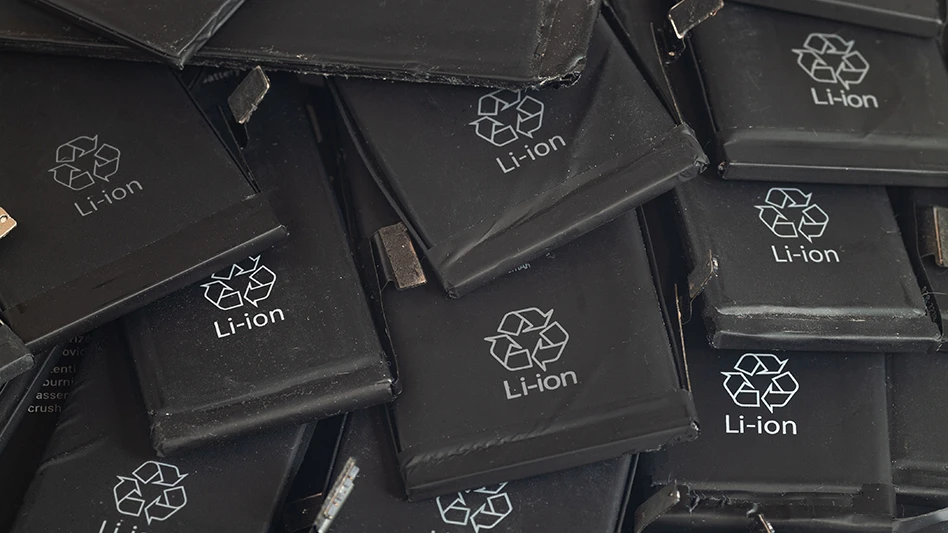
skiminok | stock.adobe.com
Singapore-based TES says investments in its battery recycling facilities will increase its capacity to 40,000 tons annually in response to the growth of electric vehicles (EVs) and the global need to recycle scarce battery component materials like lithium and cobalt.
TES says facilities in Singapore, France and Shanghai can process more than 15,000 tons of batteries annually. TES plans to add production capabilities in Gyeongju, Korea; Rotterdam, Netherlands; Yancheng, China; and Newcastle, Australia, as well as sites in Hungary and the U.S.
"The three most important factors for winning the waste battery recycling market are a dense collection network to secure future waste battery volumes, a prime location as a hub and internalization of rare metal extraction technology,” says John Oh, chief strategy officer at TES. “Together with our parent company, SK Ecoplant, we are in a strong position on these points and are well positioned for the global market.”
TES cites a report by the France-based International Energy Association which says demand for lithium-ion batteries used in EVs and hybrid vehicles tripled from 2020 to 2022. Demand for lithium exceeded supply in 2021 and 2022, even as lithium production increased by 180 percent, the report says.
According to TES, battery recycling is financially viable and investing in recycling capacity serves as one of its central goals.
“Sustainability is at the core of everything we do,” Oh says. “With this focused investment, TES will continue to embrace the circular economy and preserve resources for industry and for future generations.”
TES provides lifecycle management services for electronic scrap, batteries and information technology (IT) asset disposition. The company also provides managed deployment, equipment decommissioning and onsite data destruction services.
WANT MORE?
Enter your email to receive our newsletters.
Latest from Recycling Today
- Ferrous price hikes may be poised to pause
- BIR prepares for Spanish exhibition
- Copper exempted from latest round of tariffs
- Interchange Recycling's EPR stewardship plan approved in Yukon
- Making the case for polycoated paper recovery
- Novolex, Pactiv Evergreen finalize merger
- In memoriam: Danny Rifkin
- BIR adds to communications team





